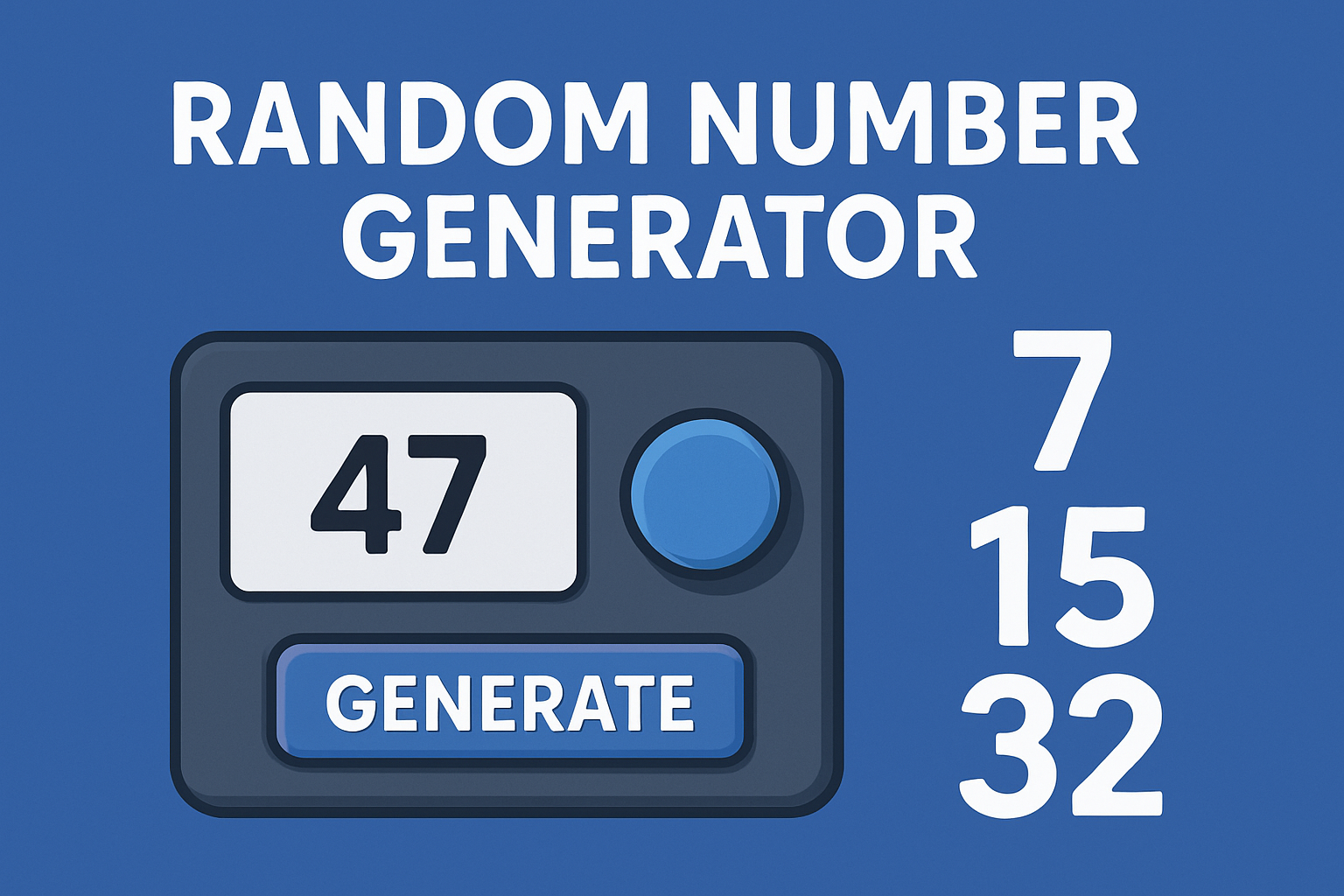
Random number generator
Created on 3 October, 2025 • Generator tools • 76 views • 2 minutes read
Discover everything about Random Number Generators (RNGs) — how they work, their types, applications in gaming, cryptography, research, and why they are essential for fairness, security, and data protection.
Random Number Generator (RNG): Everything You Need to KnowIntroduction to Random Number Generator
A Random Number Generator (RNG) is a system, algorithm, or device designed to produce numbers that cannot be predicted logically. These numbers are generated without any pattern, making them essential in areas like computer simulations, cryptography, online gaming, and statistical sampling. Random numbers ensure fairness, unpredictability, and security in digital and real-world applications.
How Does a Random Number Generator Work?
RNGs can be classified into two main categories:
1. True Random Number Generators (TRNGs)
True Random Number Generators use natural phenomena such as atmospheric noise, thermal vibrations, or radioactive decay. Since they rely on physical processes, TRNGs are highly unpredictable and are often used in security-sensitive fields like encryption and lotteries.
2. Pseudo-Random Number Generators (PRNGs)
Pseudo-Random Number Generators, on the other hand, use mathematical algorithms and initial values known as “seeds.” While they are not truly random, they produce sequences that appear random and are sufficient for most digital applications, including video games, simulations, and basic statistical modeling.
Applications of Random Number Generators
RNGs have a wide variety of practical uses across different industries.
RNG in Online Gaming and Casinos
In online gaming, RNGs guarantee fairness by ensuring that outcomes such as dice rolls, card draws, and slot machine spins are unpredictable. This prevents manipulation and builds trust between platforms and players.
RNG in Cryptography
Cybersecurity heavily depends on RNGs to generate secure encryption keys. Without randomness, encrypted communications could be predictable and vulnerable to hacking. RNG-based keys ensure data safety and protect sensitive information.
RNG in Data Science and Research
In scientific studies, RNGs are used for sampling and simulations. For example, researchers may need random samples of a population to avoid bias in experiments or predictive models.
RNG in Everyday Use
From simple coin toss apps to random password generators, RNGs play a role in daily digital tools. Even shuffle features in music apps or randomized question orders in quizzes rely on random number generators.
Advantages of Using Random Number Generators
Fairness and Transparency: Especially in gaming and lotteries.
Enhanced Security: Vital in cryptography and online transactions.
Efficiency in Research: Useful for statistical analysis and unbiased testing.
Future of Random Number Generators
With the growth of artificial intelligence, blockchain, and cybersecurity, RNG technology continues to evolve. Researchers are now exploring quantum random number generators (QRNGs), which use quantum mechanics to achieve even higher unpredictability, offering future-proof solutions for security and data protection.
Conclusion
A Random Number Generator (RNG) is much more than just a tool for picking numbers. From ensuring fairness in online games to strengthening cybersecurity through encryption, RNGs are essential in today’s digital world. Whether true or pseudo-random, they serve as the foundation of unpredictability, trust, and security across industries. As technology advances, RNGs will only grow in importance, especially with the rise of quantum computing and AI-driven systems.
Popular posts
-
Barcode readerMisc Tools • 160 views
-
Color pickerMisc Tools • 122 views
-
Exif readerMisc Tools • 117 views
-
SHA-256 generatorGenerator tools • 93 views
-
Ip LookupChecker Tools • 90 views